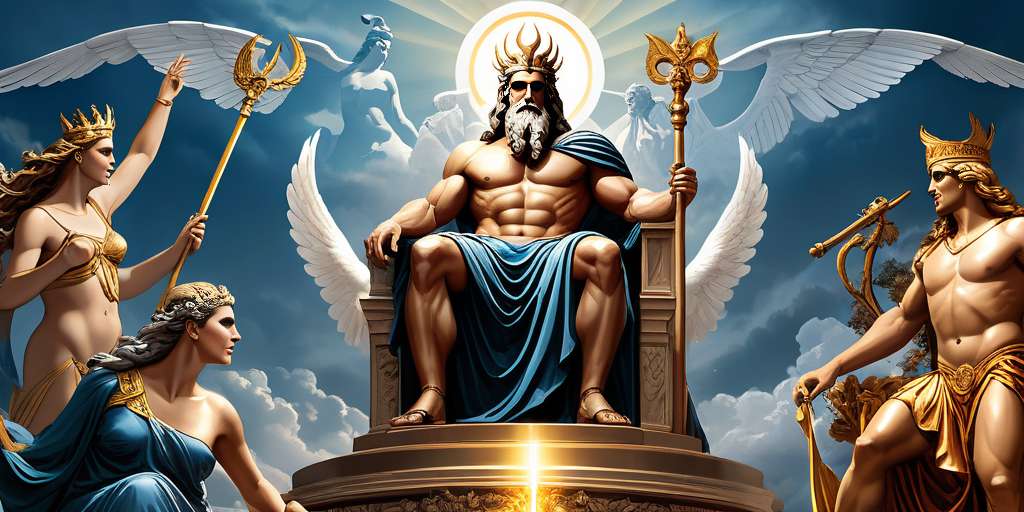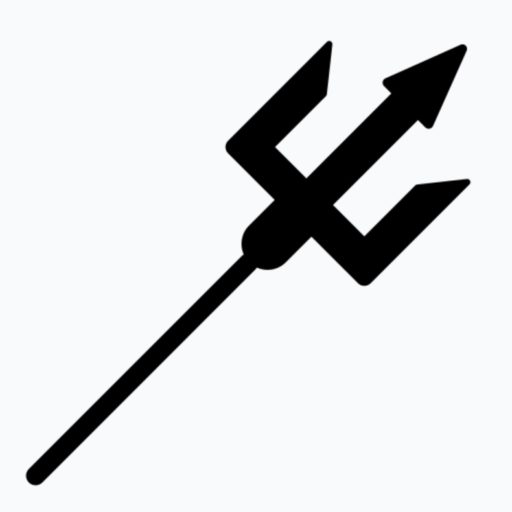Greek Mythology

Gods, heroes and legends
Greek mythology is a collection of stories and legends that are part of Ancient Greek culture.
These tales tell the stories of Greek gods and heroes, such as Zeus, Athena, Hercules and Achilles.
The gods resided on Mount Olympus and had different attributes and domains.
The heroes, for their part, performed legendary feats.
Greek mythology has left a lasting legacy in Western culture and has been widely represented in art and literature.
The gods of Olympus
In Greek mythology, the gods of Olympus occupy a prominent place as the most important and powerful deities.
They resided at the top of Mount Olympus, ruling over the divine and human world.
This pantheon of gods was composed of different divinities, each with specific attributes and domains.
Main Greek gods and their attributes
Among the principal Greek gods was Zeus, the king of the gods and lord of thunder.
His most notable attribute was lightning, and his power was supreme over the rest of the gods.
Hera, his wife, was the goddess of marriage and family, and was characterized by her beauty and authority.
Another important god was Poseidon, ruler of the oceans and earthquakes, symbolized by his trident.
In addition, Apollo was the god of the sun, music and the arts, while his sister Artemis was the goddess of hunting and nature.
The pantheon of the Olympian gods
The pantheon of the Olympian gods consisted of the twelve main gods who resided on Mount Olympus.
In addition to Zeus, Hera, Poseidon, Apollo and Artemis, Athena, goddess of wisdom and just war, and Aphrodite, goddess of love and beauty , were also part of this select group .
Hephaestus, god of the forge and fire, Demeter, goddess of fertility and agriculture, and Hermes, messenger of the gods, were also in the Olympian pantheon.
Finally, Dionysus, god of wine and celebration, and Ares, god of war, complete this list of divinities.
Minor gods and other divine beings in Greek mythology
In addition to the main Olympian gods, Greek mythology also includes minor gods and other divine beings.
These deities have more specialized characteristics and more specific domains.
For example, Hestia is the goddess of the home and family, while Persephone is the queen of the underworld.
Pan, god of nature and shepherds, and Echidna, a half-woman, half-serpent creature, are also part of this diverse group of divine beings.
These minor deities play important roles in Greek mythology and complement the pantheon of Olympian gods.
The heroes of Greek mythology
Heroes occupy a prominent place in the rich Greek mythology.
They are semi-divine figures, mortals with extraordinary abilities that distinguish them from the rest of men.
They possess qualities such as bravery, cunning and physical strength, which make them the protagonists of incredible feats.
Characteristics of heroes in Greek mythology
The heroes of Greek mythology present particular characteristics that make them special beings.
They possess an intermediate status between gods and men, which gives them a unique connection with both worlds.
In addition, they inherit their abilities and attributes from their divine progenitors, which endows them with superhuman powers and makes them capable of facing impossible challenges.
- Courage: Heroes demonstrate exceptional courage when facing fearsome enemies and overcoming difficult obstacles.
- Cunning: They use their intelligence and strategic skills to solve problems and avoid traps.
- Physical strength: They possess great physical strength, which allows them to perform impressive physical feats.
- Divine lineage: They are descendants of deities and have divine blood running through their veins, which gives them special powers and abilities.
Outstanding examples of heroes and their legendary exploits
Greek mythology is replete with heroes and their epic exploits.
Some prominent examples include:
- Heracles (Hercules): He performed the famous twelve labors, overcoming challenges such as the fight against the lion of Nemea and the capture of the Belt of Hippolyta.
- Theseus: Defeated the Minotaur in the labyrinth of Crete and freed Athens from its threat.
- Jason: Led the Argonauts on the quest for the legendary Golden Fleece.
- Achilles: Famous for his invulnerability, except for his heel, and his role in the Trojan War.
- Ulysses: Known for his cunning and for his long journey back to Ithaca after the Trojan War.
The influence of Greek heroes on Western culture
The heroes of Greek mythology have left a profound legacy in Western culture.
Their stories have been a source of inspiration for literary, artistic and cinematographic works around the world.
Their values, such as courage and perseverance, continue to be examples to follow to this day.
In addition, many of their names and exploits have been incorporated into the common vocabulary, becoming part of the cultural heritage of humanity.
Comparison with other mythologies
Greek mythology stands out for its richness and complexity, but there are also other mythological traditions with interesting similarities and differences.
Below, we will explore three relevant comparisons: Norse mythology, Roman mythology and other mythological traditions.
Differences and similarities between Greek mythology and Norse mythology.
Norse mythology, also known as Scandinavian mythology, stems from the ancient Viking cultures.
Although both Greek and Norse mythology involve gods and heroes, there are some significant differences.
- In Greek mythology, the gods reside on Mount Olympus and dominate different aspects of life, while in Norse mythology, the gods live in Asgard and focus on issues related to war, magic and destiny.
- The Greek gods are known for their temperament and their interactions with humans, while the Norse gods are more somber and are destined to face each other in a final battle called the Ragnarök.
- Both mythologies stress the importance of heroes, but Greek heroes often face deadly challenges while Norse heroes fight mythological creatures and engage in epic sagas.
The influence of Greek mythology on Roman mythology
The influence of Greek mythology on Roman mythology is undeniable, as the Romans adopted much of the Greek tradition and reinterpreted it.
- The Greek gods and their attributes were assimilated to the corresponding Roman gods, albeit with different names.
For example, Zeus became Jupiter, Aphrodite became Venus and Ares became Mars. - Although the Roman gods shared similarities with their Greek counterparts, they also had unique characteristics and roles, adapting to the Roman culture and its specific needs.
- Greek mythology was widely represented in Roman art and literature, and the stories of Greek gods and heroes merged with existing Roman mythology, creating a new and complex divine pantheon.
Greek mythology vs. other mythological traditions
In addition to Norse and Roman mythology , Greek mythology stands out when compared to other mythological traditions around the world.
- Compared to Egyptian mythology, Greek mythology presents a more anthropomorphic approach and is more focused on the relationships between gods and humans.
- In contrast to Asian mythological traditions such as Chinese or Hindu mythology , Greek mythology stands out for its emphasis on individuality and human subjectivity.
- While Celtic mythology and Greek mythology share some elements, such as the presence of gods and heroes, each tradition has its own unique structure and characterization.
These comparisons demonstrate the uniqueness and richness of Greek mythology in relation to other mythological traditions around the world.
Representations of Greek mythology in art and literature.
Greek mythology has left a profound impact on art and literature over the centuries.
Visual representations in ceramics and sculpture offer a fascinating window into the myths and legends of ancient Greece.
Examples of visual representations of Greek myths in ceramics and sculpture.
Greek painted pottery, especially vases and plates, show us detailed scenes of Greek myths and gods.
Artists captured emblematic moments, such as the birth of Athena from the head of Zeus, the battle of the gods against the Titans, and the adventures of heroes like Hercules.
In addition, Ancient Greek sculptures capture the beauty and divinity of gods and heroes.
From the famous Zeus of Olympia to the Apollo of Belvedere, these sculptural masterpieces transport us to Greek mythology, showing the artistic skill and importance attributed to these characters.
Literary works that collect the myths and legends of Greek mythology.
Greek mythology has also been extensively documented in literary works.
Homer’s epic poems, such as the Iliad and the Odyssey, narrate the adventures of heroes such as Achilles and Odysseus, as well as the conflicts between gods and mortals.
Other notable works are the Theogony and the Works and Days of Hesiod, which give us a deeper glimpse into the genealogy and daily activities of the gods and divine beings.
The legacy of Greek mythology in today’s artistic culture
The influence of Greek mythology on contemporary artistic culture is undeniable.
Its stories continue to be a source of inspiration for writers, painters, sculptors and filmmakers.
The reinterpretation of Greek myths in modern forms shows us how these characters and their stories are still relevant today.
In addition, Greek mythology has permeated narrative and symbolism in diverse forms of artistic expression, from literature to music to film.
The beauty, heroism and philosophical reflections present in these myths continue to captivate audiences and enrich our understanding of the human condition.
Perseus and the head of Medusa
In Greek mythology, few tales have captured the imagination and wonder of generations as the epic of Perseus and the head of Medusa. This myth encapsulates not only the magic and heroics typical of Greek mythology, but also deep layers of symbolism that reveal...
Poseidon: The mighty god of the sea in Greek mythology
Greek mythology is full of fascinating gods and one of the most prominent is Poseidon. Known as the god of the seas and earthquakes, Poseidon was revered in ancient Greece and was part of the Olympian pantheon. Usually depicted with his trident, he was feared and...
Prometheus, the titan who defied the gods
The myth of Prometheus in Greek mythology is a story full of symbolism. Prometheus defied the gods and showed himself to be a friend of mortals. He is credited with the creation of mankind and the delivery of fire, a vital element for the development of civilization....
Oracle of Delphi: The mystery behind ancient Greece’s divine predictions
The Oracle of Delphi, located in ancient Greece, was an important center of advice and guidance in decision-making. Dedicated to the god Apollo, its history dates back to legendary times. The oracle was consulted by people from all walks of life and its predictions...
Subscribe
If you want to receive in your mailbox stories, curiosities and legends of the most fascinating creatures of classical mythology just fill in this form.

Classical Mythology
mitologiaclasica.com is a website dedicated to explore and spread the fascinating richness of mythology, offering a vast compendium of stories, characters and legends.
Madrid, 2023
info@mitologiaclasica.com
Explore
Greek Mythology
Roman Mythology
Norse Mythology
Egyptian Mythology
Hindu Mythology
Chinese Mythology
Japanese Mythology
Celtic Mythology
Privacy Policy
Privacy Policy
Copyright mitologiaclasica.com



